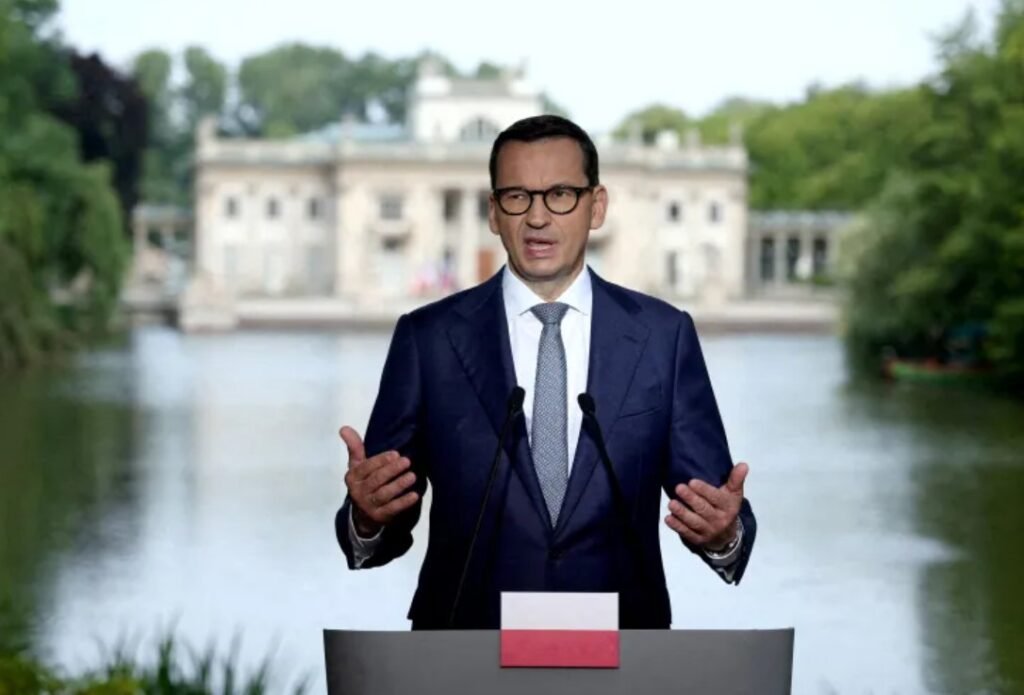Poland is holding an election on Sunday that many view as its most important one since the 1989 vote that toppled communism. The outcome will determine the future of the country’s democracy, its stance on LGBTQ+ rights and abortion, and its relations with its NATO allies and neighbors.
A polarized nation
The election has exposed deep divisions in Polish society, with emotions running high among supporters and opponents of the ruling Law and Justice party (PiS). PiS has been in power since 2015 and has pursued a conservative nationalist agenda that has eroded the checks and balances of the constitutional system, undermined the independence of the judiciary and the media, and clashed with the European Union over the rule of law.

PiS has also promoted a traditional Catholic vision of family values, opposing abortion and same-sex unions, and stoking fears of a foreign-backed “LGBTQ+ ideology” that threatens Poland’s identity and culture. The party has mobilized its loyal base of rural and older voters with generous social welfare programs, such as child benefits and lower retirement age, and has vowed to defend Poland’s sovereignty and interests from external threats.
On the other side of the political spectrum, a coalition of opposition parties, led by the centrist Civic Platform (PO), has challenged PiS’s authoritarian tendencies and promised to restore democracy, dialogue, and tolerance in Poland. The opposition has also pledged to reverse some of PiS’s controversial reforms, such as the judicial overhaul and the public media takeover, and to improve Poland’s relations with the EU and other allies. The opposition has attracted support from urban and younger voters, as well as from some moderate conservatives who are disillusioned with PiS’s divisive rhetoric and policies.
A high-stakes election
The election is widely seen as a referendum on PiS’s rule and its vision for Poland. According to opinion polls, PiS is expected to win the most votes, but it is unclear whether it will secure a majority in the 460-seat lower house of parliament, the Sejm. If PiS fails to win a majority, it may have to form a coalition with smaller parties or face a hostile opposition that could block its legislative agenda.
The election will also determine the composition of the 100-seat upper house of parliament, the Senate, which has the power to delay or amend bills passed by the Sejm. Currently, PiS holds a slim majority in the Senate, but it could lose it if the opposition manages to unite behind a single candidate in each district.
The election will also have implications for Poland’s role in Europe and beyond. PiS has been at odds with the EU over issues such as judicial independence, migration, climate change, and human rights. The party has also been supportive of US President Donald Trump’s policies, such as withdrawing from the Iran nuclear deal and moving troops from Germany to Poland. The opposition, on the other hand, has advocated for a more constructive engagement with the EU and a more balanced approach to transatlantic relations.
A tense campaign
The campaign leading up to the election has been marked by heated debates, accusations, and controversies. PiS leader Jaroslaw Kaczynski, who is widely regarded as Poland’s most powerful politician, has accused the opposition of being “traitors” who want to sell out Poland’s interests and values to foreign powers. He has also warned that if PiS loses power, Poland will face “chaos” and “anarchy”.
The opposition has denounced PiS’s attacks as fear-mongering and lies. It has also criticized PiS for mishandling the COVID-19 pandemic, which has killed over 150,000 people in Poland and caused an economic recession. The opposition has also accused PiS of using public funds and media to influence voters and of manipulating the electoral process to its advantage.
Some observers have raised concerns about the fairness and integrity of the election, citing irregularities such as missing ballots, faulty voting machines, and intimidation of voters. They have also pointed out that some voters living abroad may not be able to cast their ballots due to postal delays or travel restrictions caused by the pandemic.
A decisive moment
The election on Sunday will be a decisive moment for Poland’s future. It will determine whether PiS will continue its conservative nationalist agenda or whether the opposition will be able to stop it and restore democracy in Poland. It will also shape Poland’s relations with its neighbors and allies in a turbulent world.
The election is expected to have a high turnout, reflecting the high stakes and high emotions involved. Millions of Poles will cast their ballots in what many consider to be their most important vote since 1989.
